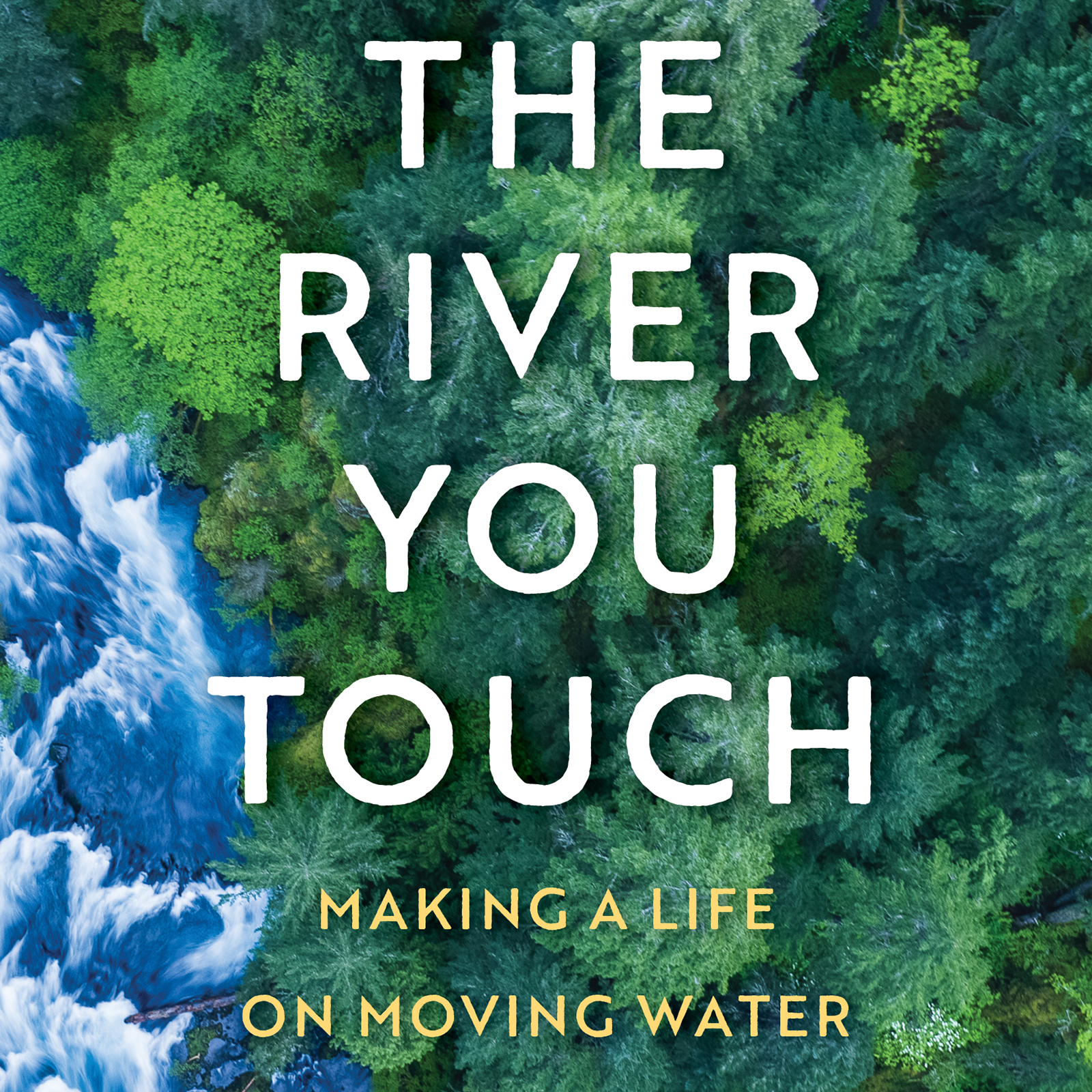Luckily for us, Chris Dombrowski — poet, author, and fishing guide — declined an insurance sales job when he was a young father, even though the family household income was as slippery as a rainbow trout haunting the rivers near his home of Missoula. The profession of actuary tables and deductibles didn’t likely suffer too much by the rejection, but the loss would have been ours, a deprivation of an expansive writer who pens about the quotidian intimacies of early parenthood (changing diapers etc.) alongside the ecstatic reverence for moving water. In his latest book, “The River You Touch: Making a Life on Moving Water,” we’re treated to an oarsman’s ode to a life lived well outside of the office cubicle, presented with a generous invitation to explore the personal confluences of marriage, fatherhood, and writing.
The author of three acclaimed collections of poetry and the current assistant director of Creative Writing at the University of Montana, Dombrowski’s second memoir is a “boat made of words: a chronicle of wonder at the place we humbly call home and an attempt to preserve the quality of attention that our children, those messengers of a hopeful reality, so often emit, without which we will find ourselves mortally far out at sea.” This is a poetic chronicle of wonder and also a record of apprehension – the kind that parenthood induces, only heightened in the peril of climate chaos and a disconcerting disconnect between people, community, and the land. Between a dwindling bank account and the lack of a steady paycheck (not uncommon to the world of river guiding and writing), Dombrowski presents the three-part story of his attempts “to live with place-driven purpose” and raising his three children with his wife, Mary, near the banks of Missoula’s Rattlesnake Creek.
As Midwestern transplants, Dombrowski and Mary were lured to the West in their twenties, and although the memoir might begin like another story about the similar yet enduring cycles of the mythologized, alluring Big Sky Country, Dombrowski pushes beyond the drift boat to reveal the complexities of living in a place with a complicated history: colonization, exploitation, and extraction. He’s refreshingly forthright: “To examine this history as a white person, even on a surface level, is to become aware of one’s complicity–distant but nonetheless existent–in the dynamic of colonial tyranny.” A student of the land, Dombrowski infuses his memoir with field-guide like lessons, what landscapes once rumbled with herds of bison, the geologic composition of the Bitterroot and Sapphire mountains, and the ongoing environmental damage from mining and smelting operations on the upper Clark Fork. This dynamic history is but one tributary Dombrowski explores in his dedicated quest to learn from the place he calls home. He writes, “Nonetheless, I have attempted to live with place-driven purpose. My aim at the oars has always been to empty myself as thoroughly as possible, and to subsequently become infused by the immensity of this infinitely wise landscape, to let it charge every pore in my being. For better or worse, measurable success or none, writing is the record of this process, is part of that story.” Very little escapes his attention, including a knowledge of the different types of barbed wire fencing–Ford’s Kink and Double Twist, Blackmier’s Strip and Tack, Barnes’s Fluted Ribbon–he observes while pheasant hunting in the Mission Valley. Wild game and foraged foods make up a substantial portion of the family’s diet and if nothing else, your stomach will rumble with pangs of hunger as you read about the meals cooked and served to family and friends: smoked pheasant stuffed with dried cherries and elk sausage, spring morel mushrooms sauteed with cream, herbed whipped cheese flaked with smoked whitefish.
Although rivers have claimed tenure as Dombrowski’s steady teachers for more than twenty-five years, he pays close attention to what the humans orbiting his tightly woven ecosystem bestow upon him. He writes tenderly of raising his three young children, marveling at their entrance and later exploration of the world: collecting watercress for pesto, scouring the forest floor for mushrooms, and hopscotching across river rocks. The same curious offspring who once remarked of their father, who was within earshot: “‘He’s a poet. He’s got a hard life.’” While the difficulties beyond the financial life of a poet might equate to a certain degree of what constitutes a “hard life,” there are many other voices captured in the story that help steer Dombrowski onto the open channel of that purposeful life he wants. Between the riverside lessons leveled by legendary and prolific writer, the late Jim Harrison, or Peg, his longest-standing guiding client, we’re granted permission to enter into a lively current of voices, many of them witty and incredibly wise.
If you should find yourself “mortally out at sea” may you find your way aboard “The River You Touch.” It’ll keep you afloat.
